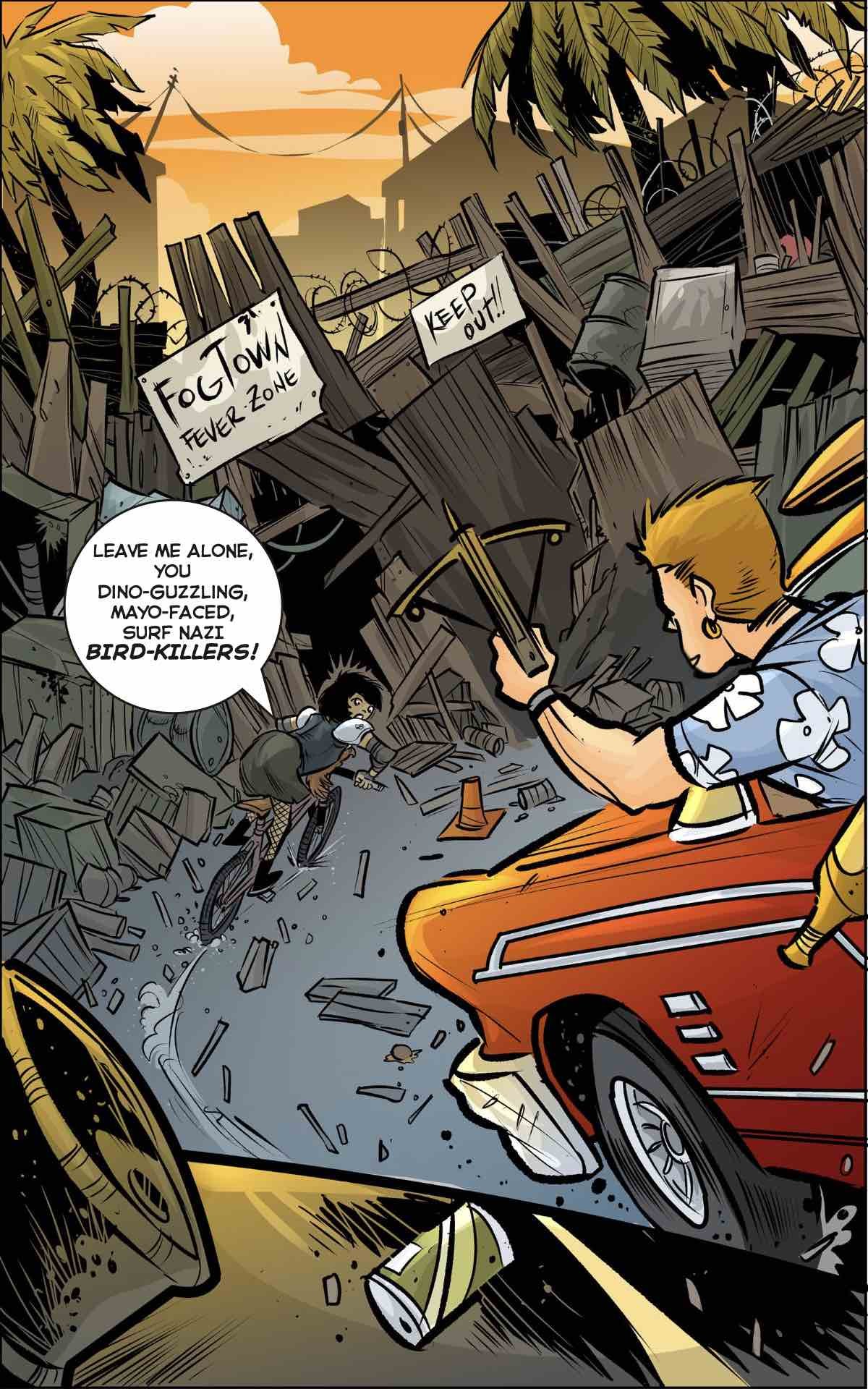
BIRDGIRL (aka Dr. Mya-Rose Craig)
Fogtown Creator Ari Gold speaks with Mya-Rose Craig, the British-Bangladeshi birder, environmentalist, diversity activist, author, speaker and broadcaster, as well as the (possibly) youngest person to ever earn an honorary doctorate in ornithology.
ARI: The main character of my project “Fogtown,” Tee, is a bird fanatic - she keeps injured birds in an aviary she also sleeps in. So while researching bird relationships, I read a scientific paper that said that birds dance not just to attract a mate - which is the common mechanistic worldview - but, simply because they enjoy it. Of course, deep down all kids know that birds dance. Or am I anthropomorphizing?
BIRDGIRL: I’ve always anthropomorphized, especially when I was young. The animals were a cast of characters to me, representing different things. There’s also this tendency to see humans as separate from the rest of the animal kingdom. But science keeps on finding animals with this or that sort of trait that we defined as “only human.” The line between us and the rest of the animal kingdom is blurrier than ever.
ARI: Speaking of blurred lines, it’s true, you’ve rescued baby birds like my character Tee?
BIRDGIRL: Yeah, totally. I mean, the first thing I want to say to people, people always think that you cannot rescue birds and put them back in the nest, because it will scare away the parents. That’s not true. Please, scoop babies back into the nest ! It saves lives !
ARI: Your book “We Have A Dream” is meant to educate kids. What were you envisioning there?
BIRDGIRL: I wanted to look at the amazing young people who are doing amazing things, and represent their work that's happening within the environmental sphere. The fact is that indigenous people are on the frontlines of climate change. Yet over and over again the indigenous are sidelined in the global conversation.
ARI: Talk to us about the intersection of race and environmentalism as you’ve experienced it.
BIRDGIRL: Obviously, growing up during 2000s environmentalism, enjoying nature was a white, middle class thing. For my family, we never saw anyone who looked like us out in nature. To an extent, pre-Greta Thurnberg environmentalism was not the most friendly of spaces. As a young, brown woman, I encountered a lot more flak than my white, male peers. It was such a weird space, because it was very liberal, everyone was vegetarian and environmental, and rode their bike, and no one wanted to consider the fact that they may be complicit in racism in some shape or form.
ARI: A harsh reality, I’m sure… but I understand that you’re engaging this through your nonprofit.
BIRDGIRL: Yes, I am. Black2Nature was my charity that I set up to work with kids and teenagers of color, to take them out into nature, out into the countryside. In the U.K., at least, it is a space that's always been reserved for the white middle class. We’ve worked with hundreds of kids and teenagers. It’s a very special project to me.
ARI: Of course, this is an intergenerational affair with a polyphony of identities, and a multitude of feelings. Rage and love.
BIRDGIRL: I feel that a lot of Youth Activism in particular is very much fueled by sort of anger or upset, which is fair. I definitely feel very angry at the state of the world. But I also know a lot of young people who are very burnt out and very tired. I think that work fueled by anger is exhausting and draining. Working from a place of love, I think that's far more resilient as a source of energy.